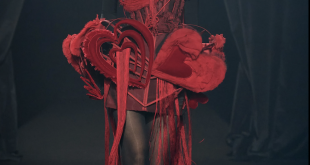In Tibetan, the name Polo means “brave wanderer”. The game of Polo actually came from Central Asia and it was first played in Persia (Iran) between the 6thcentury B.C. to the 1stcentury B.C. Polo was at first a training game for cavalry units, usually the king’s guard or other elite troops. From Persia, the game spread to Arabia, then to Tibet, China, Japan and into India. The first Europeans to play the game were British tea planters in Assam (India) who formed the first European polo club in 1859 at Silchar. Polo then grew rapidly in the late 19th century. Jump to the 21st century and you roughly have now over 24,000 players in more than 1,200 clubs around the World. Our very own Santa Barbara Polo Club was founded in 1911 and is the third oldest United States Polo Association club still in existence.
Thanks to their publicist, Jennifer Zacharias, we had a chance, my 3 boys (horses fanatics!), wife and I, to attend the ‘America Cup’ competition which was ultimately won in a very thrilling and tight game by the ‘Farmers & Merchant Bank’ team.
Polo is not only the ‘brave wanderers’ of the game, but it’s also about grace and strength. It’s about the perfect osmosis between the riders and their horses. And ultimately, it is about how the community of avid aficionados come together to support and cheer their team. In an age where we spend so much time behind our little screen, it is refreshing and invigorating to connect with the wide opened space of a polo field and the multi energies in full action, racing at full speed. After this tremendous adrenaline-driven game, I had a chance to talk to Polo manager, Melanja Jones and to the captain of the winning team: Danny Walker.
Let’s saddle on and be ready to ride into the sunset with Glory!
Pictures by David LOMINSKA
Q: What does Polo represent for your and your players?
Danny Walker: It represents that each player want to achieve their level of perspective for the whole team. They all work for each other, no one is at fault when losing and they all congratulate each other when winning. It’s nothing but a team win, for sure!
Melanja Jones: Polo is about being part of something that is bigger than yourself. It’s being part of a team, it’s being part of chasing the dream and it’s being part of an amazing community. And it’s a lot of fun!
Q: What has been lately a game changer in Polo?
Danny: Horses! Horses are continuing to improve. They are more focused on playing on the field. And this is how you win a game, with a higher degree of focus and unity between the rider, his horse and the field. You win a game when you have commitments from players to a plan of action. It’s about executing perfectly this plan of action and you have the horses to back the plan. Other than that, Polo is simple!
Melanja: The quality of horses and the numbers of horses coming to these games have increased for sure. I think it’s also about the level of organization. People start to get organized a year in advance for these tournaments. This makes a huge difference. There is also a younger demographic playing Polo. We worked a lot at developing the next generation of polo players. It’s about showing what we love about polo: being part of a team, being part of a local and international community. With Polo you become friends with people from all over the Planet. You play hard with each other on the field and then you go to the BBQ party afterwards and you become friends for ever.
Q: What is the future of Polo?
Danny: The Future of Polo? Take the Santa Barbara club who continually promotes new players, young players and then you play a wide variety of polo games allowing everyone to compete, from arenas to college, even beginners. This is the type of clubs here in Santa Barbara we need everywhere in the United States.
Melanja: That’s a very good question. Well, I think Polo suffered from the economic downturn, but the changes that came from it made the game stronger. We also see more women being involved with the sport of Polo. There is recognition of polo at all level, professional level but also at the kids level or at the student level. I think we are the future as a whole community of different players coming together and enjoying the beauty of the game.
By Emmanuel Itier
 Teacups & Couture A Fashion Blog by Roxanna Bina
Teacups & Couture A Fashion Blog by Roxanna Bina








